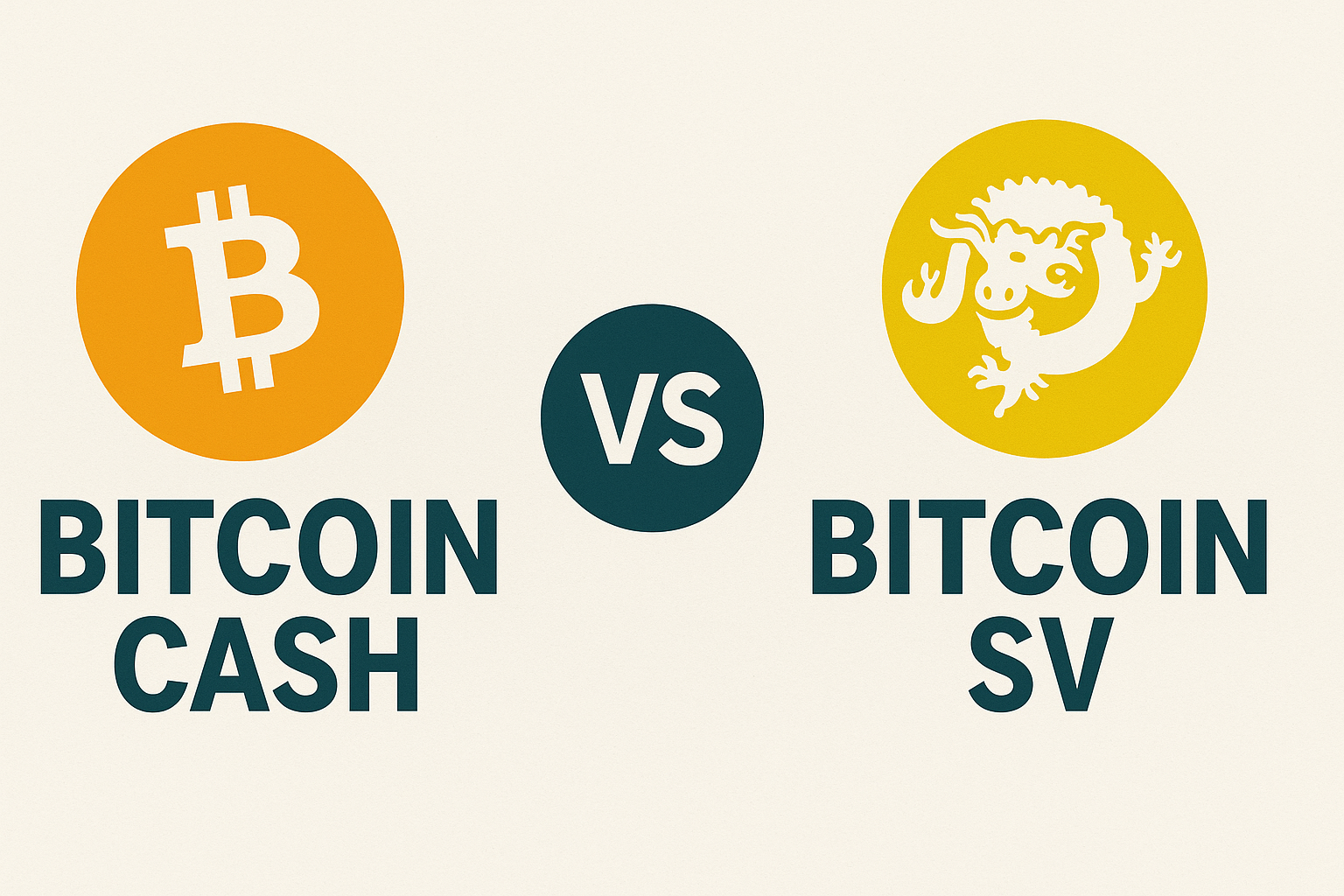Breaking News
Popular News




Enter your email address below and subscribe to our newsletter

The Bitcoin ecosystem has seen several forks over the years, but two of the most well-known are Bitcoin Cash (BCH) and Bitcoin SV (BSV) — both claiming to be closer to the “true vision” of Bitcoin.
At bit2050.com, we break down Bitcoin Cash vs Bitcoin SV into 7 crucial categories to help you understand the history, technical specs, and real-world use of these controversial Bitcoin offshoots in 2025.
Bitcoin Cash (BCH): Forked from Bitcoin in August 2017 due to disagreements about scalability and block size
Bitcoin SV (BSV): Forked from Bitcoin Cash in November 2018 after further disagreements about development direction
✅ BCH is a direct fork from BTC
✅ BSV is a fork from BCH
BCH: 32MB block size
BSV: Block size is unbounded (can exceed 1GB)
✅ BSV allows for massive data on-chain, but critics argue it sacrifices decentralization.
BCH: Focuses on fast, low-cost peer-to-peer payments
BSV: Claims to be the “original Bitcoin protocol” per Satoshi’s whitepaper, focusing on enterprise-level scalability
✅ BCH aligns more with the original payment vision
✅ BSV aims to become a data processing and smart contract platform
BCH: Accepted by many merchants (via BitPay, NOWPayments)
BSV: Limited adoption but active in certain jurisdictions like Switzerland
✅ BCH has broader retail and e-commerce presence
✅ BSV has a niche enterprise focus, including tokenized databases and micropayments
BCH: Widely supported by open-source community and hardware wallets
BSV: Critics claim centralization under nChain and Craig Wright’s influence
✅ BCH is generally seen as more decentralized and open
BCH: Active development community; supports CashFusion (privacy), Smart BCH (DeFi)
BSV: Development led by nChain and BSV Blockchain Association; supports Tokenized, Run, sCrypt
✅ BSV is more experimental with on-chain apps and tokens
✅ BCH focuses on proven, payment-first innovations
| Feature | Bitcoin Cash (BCH) | Bitcoin SV (BSV) |
|---|---|---|
| Market Cap | ~$7B (2025) | ~$1.5B (2025) |
| Exchange Support | Widely supported | Delisted from some CEXs |
| Community Size | Larger, more active | Smaller, polarized |
| Public Image | Moderate acceptance | Mixed, controversial |
✅ BCH is more widely trusted by exchanges, wallets, and investors.
A: It depends on your use case. BCH is more widely accepted and user-friendly for payments, while BSV targets enterprise-scale use cases.
A: Some major exchanges like Binance and Kraken have delisted BSV due to controversial leadership and low demand.
A: Yes. BCH is supported by Ledger, Trezor, and SafePal. BSV support is limited but available on a few platforms.
A: The split occurred due to a dispute over script functionality and protocol governance within the Bitcoin Cash community.
A: That claim is highly disputed in the broader crypto community. Bitcoin SV supporters believe so, but most developers do not agree.
The battle of Bitcoin Cash vs Bitcoin SV is more than just a technical debate — it’s about philosophy, scalability, decentralization, and adoption. While BCH continues to push for practical, global payments, BSV carves out a niche as a data-heavy enterprise chain.
Whichever side you’re on, stay informed with the latest crypto insights and deep-dive comparisons at bit2050.com — your trusted source for next-gen blockchain education.